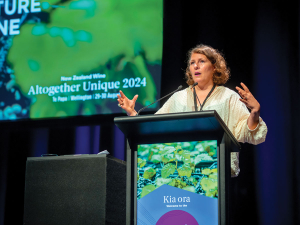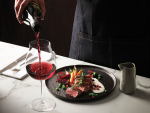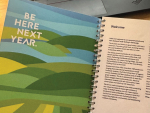OPINION: Altogether Unique 2024 was a stimulating two days, rich in business insight and research innovation.
The impressive array of speakers gave much to ponder, and certainly got me wondering about a few things.
A recurring theme was the potential for New Zealand wine to develop innovative new products and capitalise on the premiumisation of existing ones. But how well positioned are we to seize these opportunities? From a technology and quality standpoint I believe we are in a strong position and New Zealand’s overall brand is generally viewed positively, but dig a little deeper and things get trickier.
I recently attended a packed overseas masterclass which featured a European Sauvignon Blanc. Its winemaker was quick to assure us: “We do not make our sauvignon to a recipe… unlike some popular styles,” prompting knowing laughter from the audience. It was disheartening to think of all the people I knew back home who work so tirelessly to craft wines that are individual expressions of their land. I could hardly blame those laughing though, given what they see in their markets. We have sent a sea of sameness out into the world which undermines the true diversity of our industry and makes a mockery of our Altogether Unique tagline.
What does New Zealand wine stand for? Purity, innovation and care are the foundation pillars for Altogether Unique’s ‘brand essence’, but these could describe many other winegrowing countries or regions. If called upon, can you clearly articulate what gets you excited about our industry, what makes you proud, what you are busting to tell the world is happening? I sometimes struggle, despite being very proud of our industry and it being part of my job to articulate these concepts to the world.
A collective understanding of what makes our industry unique is important for not only seizing new opportunities but also for expanding the ones we already have. It’s no secret that there is a lot of wine in tanks looking for homes and many speakers at Altogether Unique sounded alarms about commoditisation. It is vital that the industry engages in meaningful conversations to establish guardrails, particularly if we aim to increase the percentage of wines bottled in market to meet decarbonisation goals. While minimal regulation has provided much needed flexibility in a young industry, we now need to assess whether this approach strengthens ‘Brand New Zealand’, or risks undermining it.
New Zealand wine is a broad church, which is a good thing. Different wines cater to different markets, different drinking occasions and different people. However in an industry dominated by one region/variety, it’s essential every voice is heard, all sectors can thrive, and everyone feels aligned with the overall direction of travel. As the Wine Business Forum’s opening speaker Felicity Carter pointed out, not everyone needs to be Romanée-Conti, but every region needs their Romanée-Contis, albeit with the caveat that this kind of ambition and greatness isn’t created simply by marketing. Instead it requires giving yourself permission to have vision and a willingness to take risks.
Innovation will play a key role in maintaining and enhancing New Zealand’s identity. It’s fascinating to contemplate the new iterations of wine discussed at the forum, but these must align with a quality-driven vision. New Zealand Winegrowers had the foresight to establish an early sustainability platform, and the newly unveiled Roadmap to Net Zero 2050 represents a significant step forward. In our warming world it not only addresses an urgent issue but positions New Zealand for global leadership if broad industry buy-in is achieved. Many producers are already making great strides in this area. While debate is inevitable, the Roadmap’s clear vision, aligned to a strategic plan and present-day innovation, make this an exciting space. This approach is also needed for managing commoditisation and developing a unified concept for our industry’s future. New Zealand wine has achieved remarkable success in a short time. More will follow provided we are willing to keep asking ourselves the tough questions.














